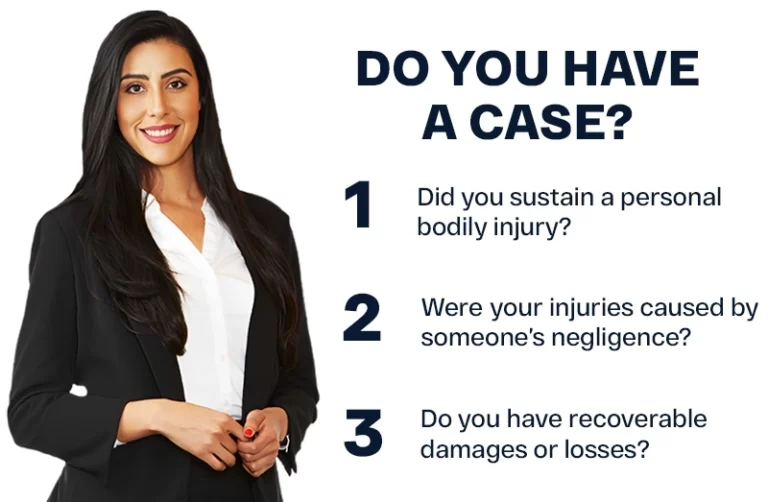Table of Contents
Attorney Vs. Lawyer: What You Need To Know
Need a lawyer? Or is it an attorney? The terms often seem interchangeable, making many wonder if there’s a real difference. In the United States, there’s virtually no distinction between a lawyer and an attorney.
Both terms refer to law school graduates who passed the bar exam and are licensed to practice law. While some may argue for slight distinctions in use or meaning, the legal profession and regulating authorities consider them synonyms.
So, what’s the source of the confusion? It is most likely due to linguistic differences that have developed over time or between regions. These phrases have become so intermingled in legal terminology that any distinction has dissolved into obscurity.
Whether you need legal advice for a personal or commercial matter, contacting a lawyer or attorney connects you with a trained professional who can provide the legal assistance you need.
In essence, the terms “lawyer” and “attorney” are fully interchangeable. There are no legal or practical distinctions between the two.
What Is A Lawyer Or An Attorney?
Essentially, a lawyer is a licensed professional who provides legal advice and representation. They are the individuals you turn to when navigating complex legal matters.
According to the American Bar Association (ABA):
“A lawyer (also called an attorney, counsel, or counselor) is a licensed professional who advises and represents others in legal matters.”
A lawyer’s responsibilities are varied. They may represent you in court, prepare contracts, or provide advice on your legal rights. Their practice covers a wide range of areas, from criminal defense to business law. Contrary to common assumptions, attorneys are not just effective courtroom combatants but also counselors, strategists, and problem solvers.
Today, the legal profession is developing. While older male professionals used to dominate the landscape, that is changing. A rising number of young attorneys, especially women, are entering the sector, bringing new ideas and methods to the legal profession.
What Does A Lawyer Or Attorney Do?
Lawyers, also known as attorneys, provide a wide range of services to individuals and businesses. Their primary role is to advise and represent clients in legal matters.
The following are some of the core responsibilities of an attorney:
Legal Research And Analysis
Effective legal representation depends heavily on legal study and analysis. Lawyers meticulously review laws, regulations, guidelines, and rulings that former courts have rendered to locate crucial facts in a case. They then search extensively in this vast body of information to provide a sound legal foundation for their clients.
This approach calls for both critical thinking and careful attention to detail. Lawyers must grasp and examine difficult legal language. They then apply their knowledge to examine the particular facts of a case and develop possible legal perspectives and remedies.
Lawyers must present a compelling argument and stay informed about the latest legislative developments. Different laws and interpretations abound; thus, it is important to keep current on any developments that can influence a case. Through thorough study and analysis, lawyers may develop effective plans to protect the interests of their clients and achieve favorable results.
Represent Clients And Advocate For Their Rights
The idea of enthusiastic advocacy drives the attorney-client relationship from its core. Good client representation requires a mix of legal understanding, advocacy prowess, and commitment to client satisfaction. Lawyers are dedicated to safeguarding and forwarding their clients’ interests, whether within or outside the courtroom. This commitment shows in all aspects of the entire process, including:
- Negotiation and Settlement — Negotiating and settling legal issues often replaces litigation. Skilled attorneys are experienced negotiators who are good at creating beneficial deals for their clients. Negotiation is a vital tool for reaching the intended results, from contract conflicts to personal injury lawsuits. For example, personal injury lawyers may bargain with insurance companies to pursue reasonable compensation for their clients.
- Litigation and Trial — Lawyers might have to represent a case before the court when conflicts cannot be settled peacefully. This procedure comprises legal document preparation, discovery, witness examination and cross-examination, and strong case presentation to juries or courts. Trial lawyers are crucial in these high-stakes cases because of their knowledge of evidence and judicial processes.
- Beyond the Courtroom — A lawyer’s work goes beyond negotiation and litigation. They offer continuous advice, assistance, and counsel to their clients. They also address queries, clarify difficult legal ideas, and respond to concerns. Attorneys enable their clients to make informed decisions by maintaining open lines of communication and fostering confidence.
Document Preparation
Practicing law means preparing documents left and right, and lawyers are expected to be adept at drafting essential documents such as contracts, wills, and pleadings. There can be no legal relationship, transaction, or proceeding established without these documents. A well-crafted contract defines the terms and conditions agreed upon by the parties, and a will is essential for estate planning. Lawyers prepare legally binding wills for their clients, taking state laws, family dynamics, and their wishes into consideration. An attorney meticulously drafts pleadings, including complaints, answers, and motions, before filing them with the court to initiate or respond to lawsuit motions. By preparing these documents, attorneys provide clients with essential tools to protect their rights, manage their affairs, and resolve disputes.
Legal Counseling And Guidance
Beyond litigation and document preparation, lawyers serve as invaluable counselors, offering advice on a wide range of legal matters. Whether you’re facing a complex legal challenge or seeking proactive guidance, an attorney can provide clarity and direction.
From understanding your rights and obligations to developing effective strategies, lawyers offer comprehensive legal counsel tailored to your needs. Their deep knowledge of the law enables them to analyze your situation, identify potential risks, and explore various options.
For example, personal injury attorneys can provide guidance on the legal process, insurance claims, and potential settlement amounts. Lawyers empower clients to make informed decisions about their legal affairs by offering clear explanations and personalized advice.
Building a strong attorney-client relationship is essential for navigating complex legal landscapes. With their expertise and support, lawyers become trusted advisors, helping clients protect their interests and achieve their goals.
Let’s consider the role of a personal injury attorney to illustrate the lawyer’s duties. Personal injury lawyers, such as those at Arash Law, embody the multifaceted responsibilities of the legal profession. We conduct in-depth investigations to uncover evidence, build robust cases to establish liability, and negotiate settlements on the client’s behalf. When necessary, our team of injury attorneys is prepared to litigate cases in court, advocating diligently for our clients’ rights. This comprehensive approach aims to provide accident victims with the care and attention needed for their case.
The Path To Becoming An Attorney Or Lawyer
The journey to becoming a lawyer requires dedication and academic excellence. To practice law in the United States, an individual must meet certain educational, examination, and character requirements.
In order to become a lawyer, aspiring students must obtain a bachelor’s degree from a college or university that is accredited. There is no specific undergraduate major required, but coursework in English, history, politics, and philosophy can provide a strong foundation.
The next step after undergraduate studies is law school. U.S. law schools typically offer a Juris Doctor (J.D.) degree, a three-year program focused on legal studies. A successful law school education prepares graduates for the bar exam.
An individual who intends to practice law must pass the state’s bar exam. During the bar exam, the candidate is evaluated on his/her knowledge of legal principles, ethics, and practical application. In addition to passing the exam, applicants are required to go through a character and fitness evaluation. This process ensures they meet the ethical standards of the legal profession.
Once they pass the bar, lawyers are authorized to practice law within that specific state. Should they wish to practice in multiple states, they would need to take the bar for each jurisdiction. However, some states do offer reciprocity for lawyers licensed in other states, but the requirements vary. In California, the admission requirements and rules of professional conduct are managed by the State Bar of California.
Alternative Path (Apprenticeship)
Some states offer apprenticeship programs for individuals seeking to become lawyers, otherwise known as “reading the law.” This path requires:
- Comprehensive legal study. Completing a specified number of hours of law under the supervision of a practicing attorney or judge, not in law school.
- Passing examinations. Completing preliminary exams and the state bar exam.
- Meeting state requirements. Complying with specific regulations for apprenticeship programs.
The apprenticeship path is not that common, but it offers an alternative route to the legal profession for those who may not wish or are unable to attend law school.
Notable Example:
Kim Kardashian is a famous example of someone who is pursuing the apprenticeship path to become a lawyer. Her journey highlights the possibility of alternative routes to the legal profession.
Specialization In A Specific Practice Area
Lawyers typically specialize in a specific area of law to offer more targeted services to their clients. It is not necessary to pick a specialization, but exploring potential practice areas can help them decide what to study in law school and what career path to pursue afterward.
There are multiple practice areas to choose from, and many law students use available resources to research the various fields. Many also choose to network with legal professionals to get more personalized insight from people who are already well-entrenched in their chosen fields. Picking a practice area will also help them decide what to focus on while in law school. If they take this focused approach, they will be better prepared for job interviews and networking events further down the line.
Specializing in a specific field, such as personal injury, requires extensive knowledge and experience. In addition to the general requirements for becoming a lawyer, personal injury attorneys must develop a comprehensive understanding of accident law, injury claims, and insurance regulations. Building a strong reputation in this field often takes years of dedicated practice.
Practice Areas Of Specialization
The legal field is vast and complex, touching virtually every aspect of our lives. An attorney can provide invaluable guidance if you’re facing a personal crisis, managing a business, or planning for the future. With numerous legal specialties available, understanding the different types of lawyers and their respective areas of expertise is crucial in finding the right professional to assist you. The following are some areas of expertise and specialization:
Personal Injury Law
A personal injury lawyer is your first line of defense if you’ve been injured due to someone else’s negligence. These legal experts specialize in helping accident victims recover compensation for their losses, including medical bills, lost wages, and pain and suffering. They will meticulously investigate your case, gather evidence, negotiate with insurance companies, and, when necessary, litigate to protect your rights.
For example, personal injury lawyers at our firm handle a wide range of accident cases, including:
- Car accidents, from minor fender benders to complex multi-vehicle collisions. Car wreck lawyers also handle hit-and-run accident cases.
- Truck accidents involving commercial trucks, 18-wheelers, and other large vehicles.
- Motorcycle accidents are often caused by road hazards, driver negligence, or other factors.
- Slip-and-fall accidents occur on residential, commercial, or public property.
- Medical malpractice for birth injuries, errors, or negligence by healthcare providers.
- Product liability for injuries caused by defective products.
- Premises liability cases for injuries sustained on someone else’s property.
- Dog bites, either under California’s dog bite law or the concept of negligence.
- Workplace accidents and injuries sustained on the job.
- Wrongful death cases help family members move forward from the loss of their loved one.
By understanding the specific types of accidents they handle, you can find a personal injury lawyer with the expertise to handle your case effectively.
Estate Planning Lawyer
Estate planning attorneys help you safeguard your assets and ensure a smooth transition of your legacy. By creating tailored estate plans, including wills, trusts, healthcare directives, and powers of attorney, these legal experts provide peace of mind and minimize potential legal disputes for your loved ones. They can also assist with tax planning, probate avoidance, and guardianship for minor children, offering comprehensive support for your long-term financial and personal well-being.
Bankruptcy Lawyer
Facing overwhelming debt can be a daunting experience. A bankruptcy lawyer can provide essential guidance through this challenging financial period. They will assess your financial situation, explain your options, and guide you through the complex process. These tasks include preparing and filing necessary paperwork, negotiating with creditors, and representing your interests in court. A bankruptcy lawyer can help you achieve financial relief and develop a plan for a fresh financial start.
Contract Attorney
Contract law is essential for protecting your interests in various legal agreements. Contract lawyers specialize in reviewing, drafting, and enforcing these contracts. Whether you’re involved in a business deal, purchasing a home, leasing property, or entering employment agreements, their expertise is invaluable. Contract lawyers can identify potential risks, negotiate favorable terms, and protect your rights. They can also assist with contract disputes, modifications, and terminations, providing comprehensive legal support for your contractual obligations.
Employment Lawyer
Employment lawyers navigate the complex world of workplace relations, representing both employees and employers. They handle a wide range of issues, including wrongful termination, discrimination, harassment, wage and hour disputes, and contract negotiations. These legal professionals ensure compliance with labor laws, advise on hiring practices, and help resolve conflicts. An employment lawyer can provide essential guidance and representation if you’re facing unfair treatment, seeking to protect your business from legal risks, or negotiating employment contracts.
Criminal Defense Attorney
Facing criminal charges can be overwhelming. A skilled criminal defense attorney is your advocate throughout the legal process. They will meticulously investigate the evidence, build a strong defense strategy, and protect your constitutional rights. From negotiating plea bargains to representing you in court, a criminal defense lawyer will advocate for your case. Whether you’re facing a misdemeanor or a felony, having an experienced attorney is crucial in safeguarding your freedom and future.
Immigration Lawyer
Immigration law is a complex and ever-evolving field. An immigration attorney can guide individuals and families through the often-daunting process of obtaining visas, green cards, or citizenship. Beyond these core services, immigration lawyers assist with deportation defense, family reunification, employment-based immigration, and navigating complex immigration policies. They can provide expert advice, prepare the necessary documentation, and represent clients in immigration proceedings, ensuring a smoother and more successful immigration journey.
It’s important to note that undocumented immigrants have certain rights, including the right to file personal injury claims if they fall victim to accidents or negligence. While immigration status doesn’t affect the legal process in this case, seeking legal counsel is crucial to understanding and protecting one’s rights.
Family Lawyer
Family law encompasses a wide range of legal matters affecting individuals and families. From the joy of building a family through adoption to the complexities of divorce, family lawyers provide essential guidance and support. These legal professionals can assist with drafting prenuptial agreements to protect assets, navigating the intricacies of child custody and support arrangements, and resolving domestic disputes. Their expertise extends to elder law, including estate planning and guardianship, as well as matters related to domestic violence and child abuse.
Family lawyers are skilled at handling sensitive issues with empathy and discretion, ensuring that the client’s best interests are prioritized throughout the legal process. Whether you’re facing a happy occasion like adopting a child or navigating a challenging situation like divorce, a family lawyer can provide invaluable support and counsel.
Etymology Of The Terms “Lawyer” And “Attorney”
While often used interchangeably today, “lawyer” and “attorney” have distinct historical origins. Understanding these etymological roots offers insight into the evolution of the legal profession.
Lawyer derives from the Middle English “lawier,” ultimately tracing back to the Old French “loier,” meaning “one versed in the law.” Early references to lawyers date back to the 14th century, when they were individuals qualified and licensed to practice law. However, the term’s scope has broadened over time to encompass legal professionals providing advice, not just courtroom representation.
Attorney, on the other hand, originates from the Middle English “attourney,” stemming from the Old French “atorne,” meaning “one appointed by another to act.” Historically, an attorney was specifically designated to represent someone in legal proceedings. This representative role remains a core function of attorneys today.
While both terms have evolved, their etymologies reflect the historical distinction between the learned legal advisor (lawyer) and the appointed legal representative (attorney).
In modern legal practice, “lawyer” and “attorney” are used interchangeably without distinction. While their historical roots suggest different roles, contemporary usage encompasses legal advice and representation under either title.
Possible Reason For The Confusion About The Terms “Lawyer” And “Attorney”
While the British legal system differentiates between solicitors and barristers, the United States has no such distinction. American lawyers can represent clients in court and provide legal advice, regardless of their self-described title.
The term “attorney of record” is often used in American legal proceedings to denote the lawyer officially representing a client in a specific case. However, this designation doesn’t imply a specialized role or limitation on the types of cases an attorney can handle.
In most U.S. jurisdictions, licensed attorneys have the authority to practice in various legal areas. While they may specialize in a particular field, such as trial litigation, there’s no legal requirement. This flexibility allows lawyers to adapt to their client’s needs and interests.
Can You Be A United States Lawyer Without Passing The Bar?
No. While you can earn a law degree without passing the bar, you cannot practice law in the United States without being licensed. Passing the bar exam grants you the authority to represent clients and provide legal advice.
To be a lawyer in the United States, one must successfully navigate the bar admission process. This typically involves completing law school, passing the bar exam, and meeting character and fitness requirements.
The American Bar Association (ABA) plays a role in legal education but does not directly grant licenses to practice law. Each state has its own board of bar examiners, often affiliated with the state’s highest court, responsible for overseeing bar admissions. The specific requirements for bar admission, including eligibility criteria for taking the bar exam, are determined by individual states, not by the ABA.
For example, the State Bar of California has distinct instructions, requirements, and schedules for its bar examination.
Can I Take The Bar Exam Without Going To Law School?
Generally speaking, you must have a law degree from an accredited law school to take the bar exam. However, there is an exception. While it’s less common, becoming a lawyer without attending law school in a few U.S. states is possible. This alternative path is known as “reading the law” or an apprenticeship program.
States that allow this apprenticeship approach include California, Virginia, Vermont, and Washington. To qualify, you must:
- Study under the supervision of a practicing attorney or judge for at least four years.
- Complete specified coursework and pass preliminary examinations.
- Successfully pass the state bar exam.
This path requires dedication and self-discipline, as it’s more rigorous than traditional law school. However, it’s a viable option for those seeking to enter the legal profession without going through the traditional academic route.
The Importance Of Legal Licensing
The titles “lawyer” and “attorney” hold significant weight within the legal profession. They signify a high level of education, specialized training, and ethical conduct. Using these titles without a valid license can have serious consequences.
Licensed attorneys are subject to strict regulations. They must adhere to codes of conduct, maintain their licenses through continuing education, and face disciplinary action if they violate professional standards. These safeguards protect the public and ensure that legal professionals are qualified and accountable.
Individuals who are not licensed to practice law cannot represent clients in court or provide legal advice. Doing so is considered the unauthorized practice of law, which can lead to civil or criminal penalties. By falsely representing themselves as licensed attorneys, unlicensed individuals risk legal repercussions and undermine the public’s trust in the legal profession. While the terms “lawyer” and “attorney” may have historical nuances, their modern-day understanding is clear: they mean the same and refer to licensed legal professionals who are authorized to represent clients and provide legal advice.
Clients who rely on an unlicensed individual’s advice may be at risk. They may have limited recourse if the unlicensed individual commits malpractice or provides incorrect legal guidance.
In conclusion, the title “lawyer” or “attorney” is a protected designation reserved for those who have met the rigorous legal education and licensure requirements. Using this title without proper authorization can have serious professional and legal consequences.
Should You Hire A Lawyer Or Attorney For Your Personal Injury Case?
Whether they claim to be a personal injury attorney or a personal injury lawyer is inconsequential. Both terms mean the same and are used interchangeably. An experienced legal counselor can represent you in court, defend your rights, and advocate for your best interests.
Courtroom representation is a cornerstone of an attorney’s duties and a key motivator for many law school hopefuls. Injured and unsure where to turn? Our experienced personal injury attorneys will advocate for your rights and interests. Arash Law can represent you in various cases, such as:
- Rear-end collisions and other motor vehicle accidents. We have reckless driving accident attorneys and speeding-related accident attorneys who will advocate for your rights and properly represent you in court.
- Delivery truck accidents, 18-wheeler accidents, and semi-truck accidents.
- Uber accidents and other rideshare accidents.
- Drunk driving accidents.
The list above is by no means comprehensive. Our experienced personal injury lawyers have the skills and knowledge to handle a wide range of accident cases in California.
How Do I Choose A Personal Injury Attorney?
Navigating a personal injury claim can be overwhelming, but selecting the right attorney can significantly ease the process. Find a skilled injury attorney whom you can trust and easily communicate with. Remember, building a strong working relationship with your legal counsel is one vital key to a successful claim.
When interviewing potential personal injury attorneys, ask probing questions to assess their qualifications and suitability for your case. Assess them based on these factors:
- Case Strategy — Inquire about their specific strategies for handling your type of case.
- Communication — Understand how frequently you’ll receive updates on your claim’s progress.
- Experience — Ask about their experience with similar cases and their approach to cases of this nature.
- Fees — Discuss the attorney’s fee structure, including hourly rates or contingency fee agreements.
Beware of unrealistic promises. A reputable attorney will provide honest guidance and manage your expectations effectively. Prioritize transparency and open communication when selecting your legal counsel. By finding a personal injury lawyer who aligns with your needs and values, you’re well on your way to achieving a favorable outcome.
Frequently Asked Questions
Is “Lawyer” Another Word For “Attorney”?
Yes, “attorney” and “lawyer” are synonymous in the United States. Both terms refer to individuals who have graduated from law school, passed the bar exam, and are licensed to practice law. There is no legal distinction between the two in the U.S. legal system.
Which One Do I Need, A Lawyer Or An Attorney?
You need a lawyer or attorney if you have a legal issue or concern, such as a personal injury claim. It doesn’t matter what you call them, as both terms mean the same in the U.S.
A legal professional can provide valuable insight, represent your interests, and help you navigate the complexities of the legal system. For example, if you have a personal injury claim, an accident attorney can guide you through the process, negotiate with insurance companies, and litigate if necessary to protect your rights and pursue fair compensation.
JD Vs. Esq.: What’s The Difference?
JD and Esq. are both legal titles, but they have different meanings. While both titles indicate a legal education, Esq. indicates that the individual is licensed to practice law.
- JD stands for Juris Doctor. It’s a professional degree awarded upon successful completion of law school.
- Esq. is a courtesy title that signifies a person has a JD degree and passed the bar exam. Only a lawyer or attorney can use “Esq.”
Is “How Does Having A Lawyer On Retainer Work?”
Having a lawyer on retainer means that you pay an upfront fee to secure their services for ongoing legal needs. This payment acts as a “reservation” for the lawyer’s time and expertise, allowing you to access legal advice or representation when needed. The retainer amount is typically deducted as the lawyer works on your case, and if the costs exceed the retainer, the client may need to pay additional fees. In some cases, the retainer can be replenished if the legal work is ongoing.
While “retainer” and “retainer agreement” are sometimes used interchangeably, they have distinct meanings. A retainer is a financial arrangement, while a retainer agreement is a legal contract outlining the terms of the attorney-client relationship.
What Is The Word For When A Lawyer Works For Free?
“Pro bono” is the term used when lawyers provide their services for free. Pro bono programs often involve partnerships between bar associations and nonprofit organizations to match low-income individuals with volunteer lawyers.
What Types Of Cases Typically Can’t Have Contingency Agreements?
Contingency fee arrangements are generally not available in the following types of cases:
- Criminal Defense — Due to ethical concerns and potential conflicts of interest, criminal defense attorneys typically do not work on a contingency fee basis.
- Divorce and Family Law — Matters involving divorce, child custody, and other family-related issues are often handled on an hourly fee basis to ensure that the attorney can provide unbiased advice and representation.
- Business-Related Cases — Corporate and business law cases often involve complex legal matters that require significant upfront work and investment, making contingency fees less feasible.
- Contracts and Closings — Real estate closings and other contract-related matters are typically handled on a flat-fee basis.
Personal injury cases are often handled on a contingency fee basis. The personal injury attorney‘s fee is typically a percentage of the settlement or verdict obtained. This arrangement can benefit clients who may not have the upfront funds to cover legal fees. If the case is unsuccessful, the attorney may not receive any payment.
It’s important to note that while these are common examples, there may be exceptions or variations depending on the specific circumstances and jurisdiction.
How Much Do Most Lawyers Charge On A Contingency Basis?
Contingency fees for personal injury lawyers are usually calculated as a portion of the total compensation recovered. This means you only pay the attorney’s fees if the case is successful, and the fee is deducted from your settlement or verdict.
It’s important to note that this is a general guideline, and the specific percentage can vary depending on factors such as:
- The Complexity of the Case — More complex cases may have higher contingency fees.
- The Likelihood of Success — Cases with a higher probability of success may have lower contingency fees.
- The Attorney’s Experience & Reputation — More experienced attorneys may charge higher fees.
Ultimately, discussing the contingency fee arrangement with your chosen accident lawyer is crucial to understanding the specific terms and conditions applicable to your case. Additionally, clients should be aware that some court costs or related expenses may still apply.
Need Court Representation For Your Personal Injury Claim? Get Help From Our Attorneys
Injured and unsure where to turn? Our experienced personal injury attorneys are here to help. We can guide you through the claims process and assist with gathering documentation, communicating with insurers, and addressing any legal questions or concerns that may arise.
Contact our California injury law firm at (888) 488-1391 or complete our online form. We’re here to help protect your rights and pursue compensation for your injuries and related losses.
Arash Law is dedicated to representing truck accident victims throughout California. We serve major cities like Los Angeles, Sacramento, Stockton, Modesto, Eureka, San Francisco, Oakland, San Jose, San Diego, Pasadena, Fresno, and Florida. We’re here to provide dedicated legal representation and support.











